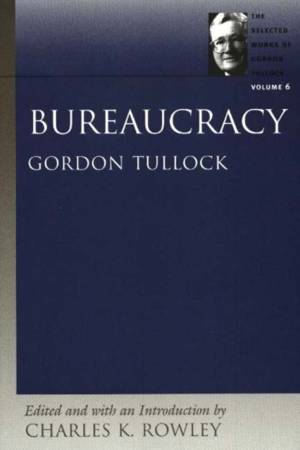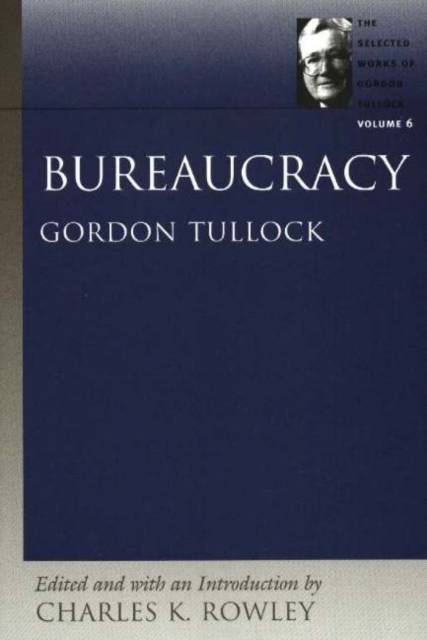
- Retrait gratuit dans votre magasin Club
- 7.000.000 titres dans notre catalogue
- Payer en toute sécurité
- Toujours un magasin près de chez vous
- Retrait gratuit dans votre magasin Club
- 7.000.000 titres dans notre catalogue
- Payer en toute sécurité
- Toujours un magasin près de chez vous
Description
Bureaucracy provides access to two important and influential books on bureaucracy by Gordon Tullock: The Politics of Bureaucracy (1965) and Economic Hierarchies, Organization and the Structure of Production (1992).
When The Politics of Bureaucracy was published in 1965, bureaucracy was viewed by many people as benign--serving the public good with objectivity and omniscience.
In Economic Hierarchies, Organization and the Structure of Production, Tullock looks at bureaucracy in a different but related way, basing his new book on developments in the theory of the firm that had occurred during the intervening period. By comparing the politics of bureaucracy with the economics of industrial organization, Tullock demonstrates that corporations perform with greater economic efficiency than do government bureaus.
Gordon Tullock is Professor Emeritus of Law at George Mason University, where he was Distinguished Research Fellow in the Center for Study of Public Choice and University Professor of Law and Economics. He also taught at the University of South Carolina, the University of Virginia, Rice University, Virginia Polytechnic Institute and State University, and the University of Arizona. In 1966 he founded the journal that became Public Choice and remained its editor until 1990.
Charles K. Rowley was Duncan Black Professor of Economics at George Mason University and a Senior Fellow of the James M. Buchanan Center for Political Economy at George Mason University. He was also General Director of the Locke Institute.
Spécifications
Parties prenantes
- Auteur(s) :
- Editeur:
Contenu
- Nombre de pages :
- 437
- Langue:
- Anglais
- Collection :
- Tome:
- n° 6
Caractéristiques
- EAN:
- 9780865975361
- Date de parution :
- 20-06-05
- Format:
- Livre broché
- Format numérique:
- Trade paperback (VS)
- Dimensions :
- 152 mm x 226 mm
- Poids :
- 793 g







